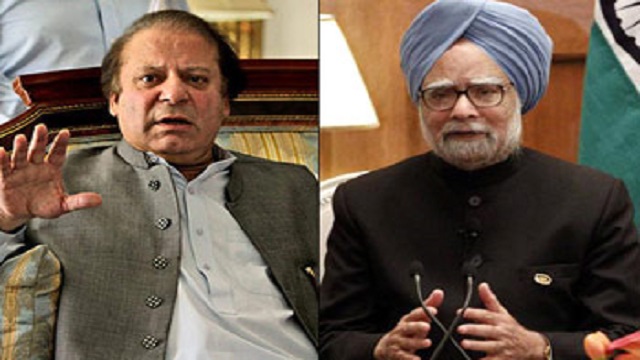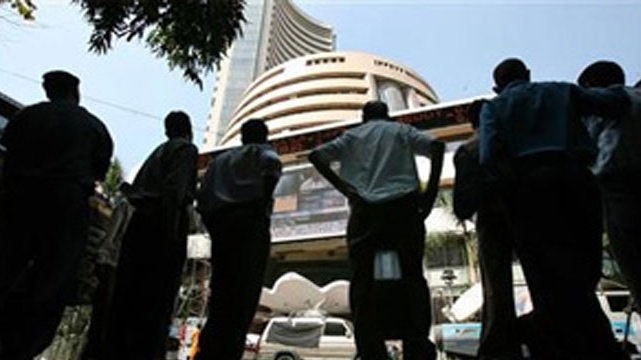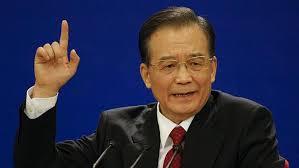Manmohan Singh calls Pakistan an “epicentre of terror” but agrees to hold dialogues with Nawaz Sharif. Opposition needs to understand that to stop feeling the tremors in India, we will have to help Pakistan.
When the pro-peace government of Nawaz Sharif was once again formed in Pakistan, there was a sense of relief all over the country. A possibility of normalcy in the valley was predicted. But the provocative killing of five Indian soldiers on Line of Control (LoC) smeared the hopes black.
There have been repeated instance of killing across the LoC where India too retaliated. The mini-wars had nonetheless put a question mark on the prospects of talk between the two governments.
If we look backwards, both the countries have had their shares of foiling the dialogues leading to a peaceful life in the area. If it was Pakistan who had always been stubborn in demanding Kashmir and aligning itself strategically with the countries which may harm Indian interests, India too has lost many golden opportunities to move forward the peace accords which were need of the hour.
Prime Minister Manmohan Singh may be held responsible for the failure of the peace accord with General Musharraf which could have otherwise changed the paradigm of terror too. He also failed to seize a historic opportunity with Pak president Zardari. But the cause in the later case puts onus on the Pak government. Had it done some more to satisfy India’s legitimate demand for some visible movement in the trial of Mumbai terror attack accused, things would have been better in the books of both the countries.
The two counterparts are set to meet in New York this time on the sidelines of UN General Assembly meeting. And just two days before the talks, terrorists stormed into Jammu & Kashmir launching twin attacks which left 13 dead.
The attack sparked a row between the government and the opposition, which included media, which demanded stopping Singh from talking to Sharif. “All these years, since 2004, Pakistan has been indulging in cross-border terrorism, including the famous ones like the 26/11 attack on Mumbai. Then, recently, we have seen their behaviour on the Line of Control in Jammu and Kashmir, which is totally objectionable. So, is this the right atmosphere and the right time to talk to Pakistan at the summit level?” Senior BJP leader Yashwant Sinha had questioned on Wednesday. The BJP leaders said the attacks only reflected that Pakistan was continuing with its strategy to strike at will through proxy war of terror and suggested there was no point in talking to the Pakistani side after its repeated mockery of India’s resolution-through-dialogue stand.
As much as the Indian media and opposition wanted Singh to stop the dialogue process, he moved with a stronger resolve to do so, which is a good step.
It should be understood that the dialogue process between the two countries can only ensure better prospects between the two countries. The talks have always been fated to move in a viscious circle due to external factors all the time which had not only marred the economic possibility between the two countries, it has also punched a hole in the counter-terror strategies both sides.
The militants will not listen to the Pakistani PM. The attacks which had been carried out in Pakistan itself by the terror outfits is an ample evidence of that. Though it may be called a failure of the Pak government who repeatedly fails to eliminate terrorism from its own land, it should also be seen as a problem infesting the country resulting into no growth.
As Sharif holds the hope of “prosperity” for his country with “benefit” for India, we should not look at scuttling the bright picture. What PM Manmohan Singh is doing now, moving ahead with the peace talks, would have been done by the former PM Atal Behari Vajpayee too in the circumstances.
Sharif had said in an interview to the Wall street journal, “I feel very proud that I’m the one who brought the two countries closer together. The Indian Prime Minister (A B Vajpayee) embarked on a visit to Pakistan (in 1999), on his first-ever state visit. We are now picking up the threads from where we left off in 1999.”
His points are simple. He says that India and Pakistan have a solid basis to prosper together. And he has worked his part to provide the solution. He wants to work on the same Lahore accord signed by Vajpayee government.
As senior Pakistan journalist Imtiaz Alam wrote in his article in an Indian english daily, “for progress to take place, Pakistan and its powerful establishment must realise the folly of creating a highly intractable, violent and divisive mass of terrorist and extremist outfits as an instrument of its foreign and security policies. These are not “strategic assets” but freelancers in the market of global terrorism. These outfits fight among themselves over sectarian and factional dividends of warfare and expand their fiefdoms at each other’s cost across the Afghanistan-Pakistan border regions and beyond.”
It would be better if, for once, we Indians too shed our inhibitions and old fixations about Pakistan. The neigbour of ours is neck deep in its own creations and it is trying to find a way to sustain.
As Indian PM Manmohan Singh informed US President Barack Obama just few hours ago, Pakistan remains an epicentre of terroism. But to stop feeling the tremors in India, we will have to help it stabilise the Afghanistan border.





